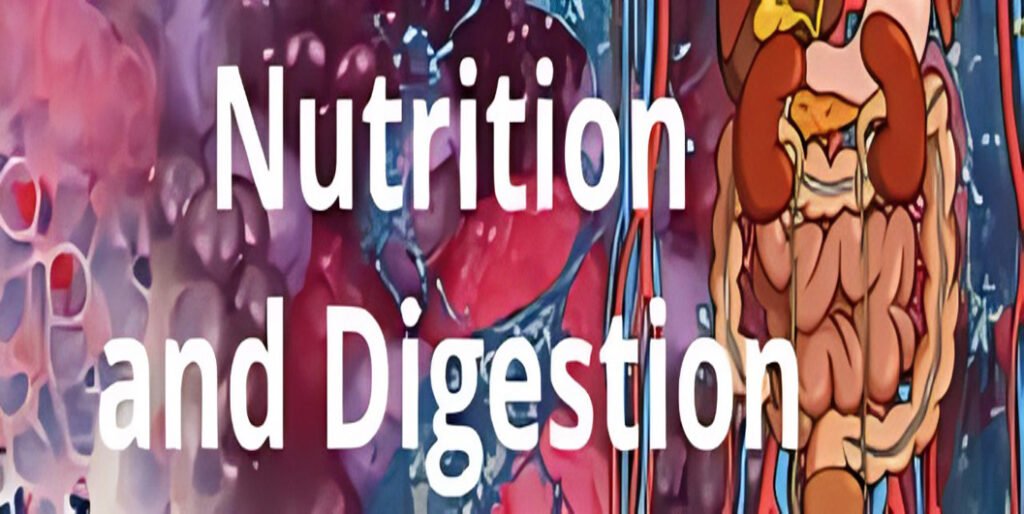Unlock the secrets to optimal health through understanding nutrition and digestion.
The Importance of Proper Nutrition
Proper nutrition plays a crucial role in maintaining overall health and well-being. It provides the body with the necessary nutrients, vitamins, and minerals to function optimally. A balanced diet that includes a variety of food groups is essential for supporting the body’s growth, repair, and maintenance processes.
Good nutrition is especially important for the digestive system, as it ensures the proper functioning of the organs involved in digestion. Without adequate nutrition, the digestive system may struggle to break down and absorb nutrients, leading to various health issues.
In addition to supporting digestion, proper nutrition also helps prevent chronic diseases such as obesity, diabetes, and heart disease. It promotes a healthy weight, boosts the immune system, and enhances overall energy levels.
By understanding the importance of proper nutrition, you can make informed choices about the foods you consume and improve your overall health and well-being.
Key Nutrients for Digestive Health
Several key nutrients play a vital role in maintaining digestive health. These nutrients help support the proper functioning of the digestive system and ensure optimal digestion and nutrient absorption.
Fiber: Fiber is essential for maintaining regular bowel movements and preventing constipation. It adds bulk to the stool, promotes the growth of beneficial gut bacteria, and helps prevent digestive disorders such as diverticulitis.
Probiotics: Probiotics are beneficial bacteria that help maintain a healthy balance of gut flora. They can improve digestion, strengthen the immune system, and alleviate symptoms of digestive disorders such as irritable bowel syndrome (IBS). Probiotics can be found in fermented foods like yogurt, sauerkraut, and kimchi.
Digestive Enzymes: Digestive enzymes help break down food into smaller molecules that can be easily absorbed by the body. They support the digestion of carbohydrates, proteins, and fats, ensuring the efficient extraction of nutrients.
Omega-3 Fatty Acids: Omega-3 fatty acids have anti-inflammatory properties that can help reduce inflammation in the digestive tract. They can benefit individuals with inflammatory bowel diseases like Crohn’s disease and ulcerative colitis.
By incorporating these key nutrients into your diet, you can promote digestive health and enhance your overall well-being.
Digestive System Overview
The digestive system is a complex network of organs and processes that work together to break down food and absorb nutrients. It consists of the following components:
Mouth: The digestion process begins in the mouth, where food is chewed and mixed with saliva. Saliva contains enzymes that initiate the breakdown of carbohydrates.
Esophagus: The esophagus is a muscular tube that transports food from the mouth to the stomach through rhythmic contractions known as peristalsis.
Stomach: The stomach secretes gastric juices, including enzymes and hydrochloric acid, to further break down food into a semi-liquid mixture called chyme. It also kills bacteria present in food.
Small Intestine: The small intestine is where most of the digestion and absorption of nutrients occur. It is divided into three sections: the duodenum, jejunum, and ileum. The inner lining of the small intestine contains villi and microvilli, which increase the surface area for nutrient absorption.
Large Intestine: The large intestine, also known as the colon, absorbs water and electrolytes from undigested food, forming feces. It also houses beneficial gut bacteria that aid in the fermentation of certain fibers.
Rectum and Anus: The rectum stores feces until they can be eliminated through the anus.
Understanding the different components of the digestive system can help you appreciate the complexity of the digestion process and the importance of maintaining its health.
Common Digestive Issues
Digestive issues are common and can range from mild discomfort to serious conditions. Some of the most common digestive issues include:
- Acid Reflux: Acid reflux occurs when stomach acid flows back into the esophagus, causing heartburn and discomfort. It is often triggered by certain foods, stress, or a weakened lower esophageal sphincter (LES).
- Irritable Bowel Syndrome (IBS): IBS is a chronic disorder that affects the large intestine. It is characterized by symptoms such as abdominal pain, bloating, gas, and changes in bowel habits. The exact cause of IBS is unknown, but it is often triggered by certain foods, stress, or hormonal changes.
- Constipation: Constipation refers to difficulty passing stools or infrequent bowel movements. It can be caused by a lack of fiber in the diet, dehydration, certain medications, or underlying medical conditions.
- Diarrhea: Diarrhea is characterized by loose, watery stools. It can be caused by viral or bacterial infections, food intolerances, certain medications, or underlying digestive disorders.
- Gastritis: Gastritis is inflammation of the stomach lining. It can be caused by infection, excessive alcohol consumption, prolonged use of nonsteroidal anti-inflammatory drugs (NSAIDs), or autoimmune disorders.
If you experience persistent or severe digestive issues, it is important to consult a healthcare professional for proper diagnosis and treatment.
Tips for Improving Digestion
Maintaining a healthy digestive system is essential for overall well-being. Here are some tips to improve digestion:
- Eat a Balanced Diet: Include a variety of fruits, vegetables, whole grains, lean proteins, and healthy fats in your diet. Avoid processed foods, excessive sugar, and unhealthy fats.
- Stay Hydrated: Drink an adequate amount of water throughout the day to support digestion and prevent constipation.
- Chew Your Food Thoroughly: Chewing food properly helps break it down into smaller particles, making it easier to digest. It also stimulates the release of enzymes in the saliva.
- Manage Stress: Chronic stress can negatively impact digestion. Practice stress-management techniques such as meditation, deep breathing exercises, or engaging in activities you enjoy.
- Exercise Regularly: Physical activity promotes healthy digestion by stimulating the muscles of the digestive tract. Aim for at least 30 minutes of moderate exercise most days of the week.
- Limit Alcohol and Caffeine: Excessive alcohol and caffeine intake can irritate the digestive system. Limit your consumption and opt for healthier alternatives like herbal teas or infused water.
By incorporating these tips into your lifestyle, you can optimize your digestion and improve your overall digestive health.





